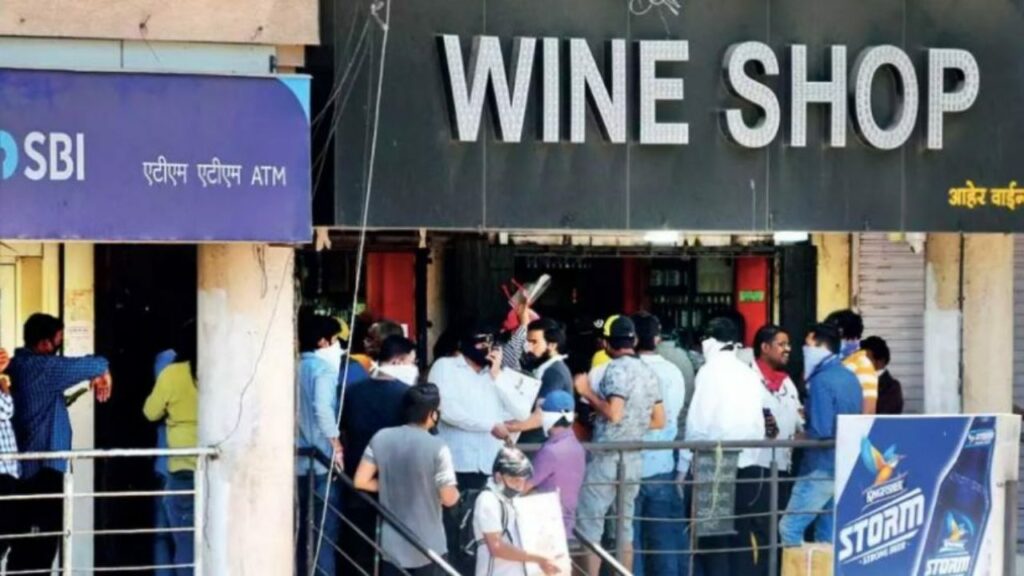Soon, alcohol may be delivered via BigBasket, Zomato, and Swiggy, starting with low-alcohol beverages like wine, beer, and liqueurs.

States including Kerala, Tamil Nadu, Punjab, Karnataka, Haryana, New Delhi, and Goa are investigating pilot programs for online booze delivery.
Alcohol Delivery Through Swiggy, Zomato, Big Basket
The benefits and drawbacks of permitting online alcohol delivery are being considered by authorities. At the moment, West Bengal and Odisha are the only states that permit the home delivery of alcoholic beverages.
The purpose of the move is to serve three target markets: the expanding expat population; customers who like spirits with a reasonable amount of alcohol with their meals; and women and older citizens who dislike traditional liquor stores.
Online delivery models guarantee complete transaction records, age verification, delivery limit observance, and regulatory and excise compliance.
As per Dinker Vashisht, vice-president, corporate affairs at Swiggy, “Online models ensure end-to-end transaction records, age verification and adhere to limits. Further, online tech stacks synchronise with regulatory and excise requirements, ensuring adherence to timings, dry days and zonal delivery guardrails.”
Online tech stacks are capable of adhering to timetables, dry days, and zonal delivery limitations, among other regulatory criteria.
During the Covid-19 lockdowns in Maharashtra, Jharkhand, Chhattisgarh, and Assam, liquor deliveries were temporarily permitted under certain conditions. Sales of alcoholic beverages in West Bengal and Odisha are said to have increased by 20–30% as a result of online deliveries.
According to Rahul Singh, chief executive of The Beer Cafe, enabling online home delivery of booze can improve customer convenience, spur economic growth, and follow worldwide trends while guaranteeing responsible and controlled alcohol distribution.
User Convenience at Risk in India’s Draft Digital Bill?
As per a recent analysis done by the CUTS Institute for Regulation & Competition (CIRC), there can be a significant impact of India’s draft Digital Competition Bill (DCB) on the user experience of various digital platforms.
The Bill aims to regulate large digital enterprises (LDEs) by designating them as Systemically Significant Data Enterprises (SSDEs) based on user and financial thresholds.
As per the analysis, 13 major digital companies in India which includes the likes of Zomato, Swiggy, Paytm, IRCTC, Makemytrip, and Flipkart, would likely fall under the purview of the DCB.
Hence, these companies might face stricter regulations aimed at promoting fair competition in the digital market.
As per the report, the concerns were raised about the potential downsides of the DCB for consumers. The focus on ex-ante regulations, which intervene before any anti-competitive practices occur, might lead to a cumbersome user experience.











